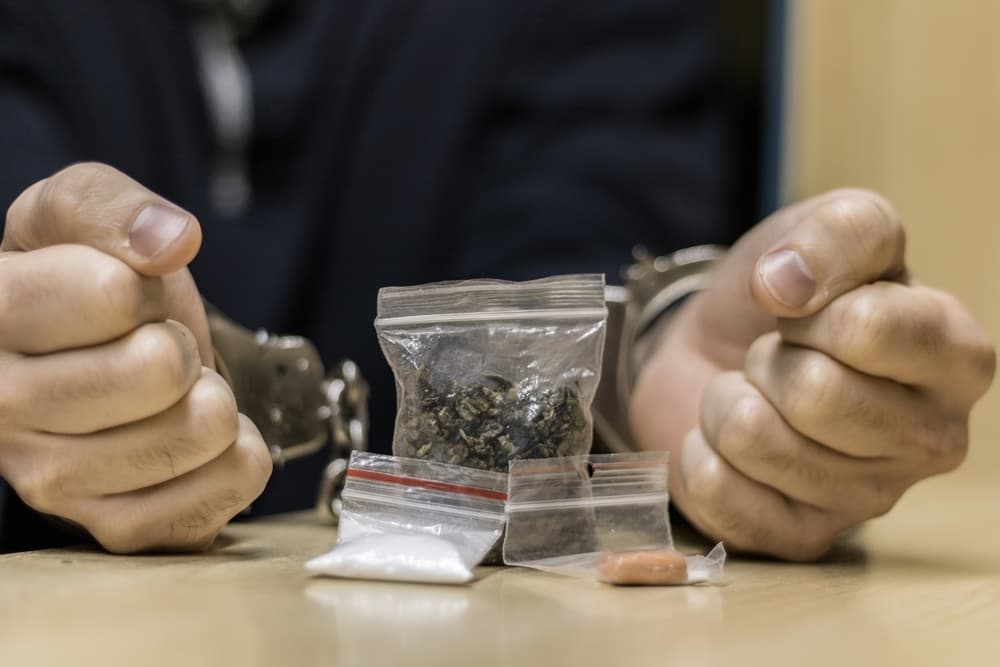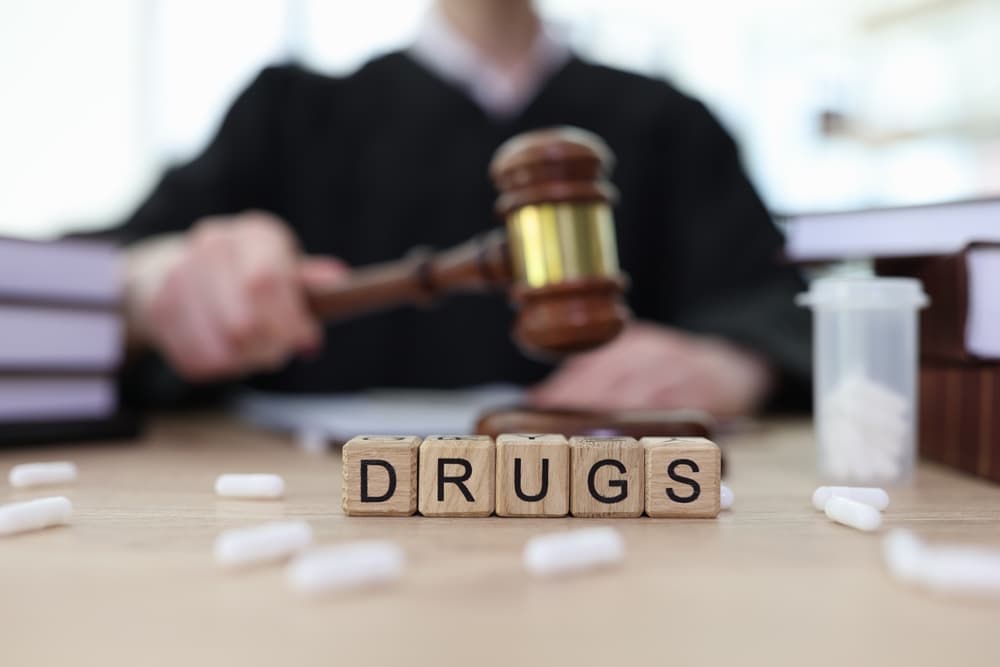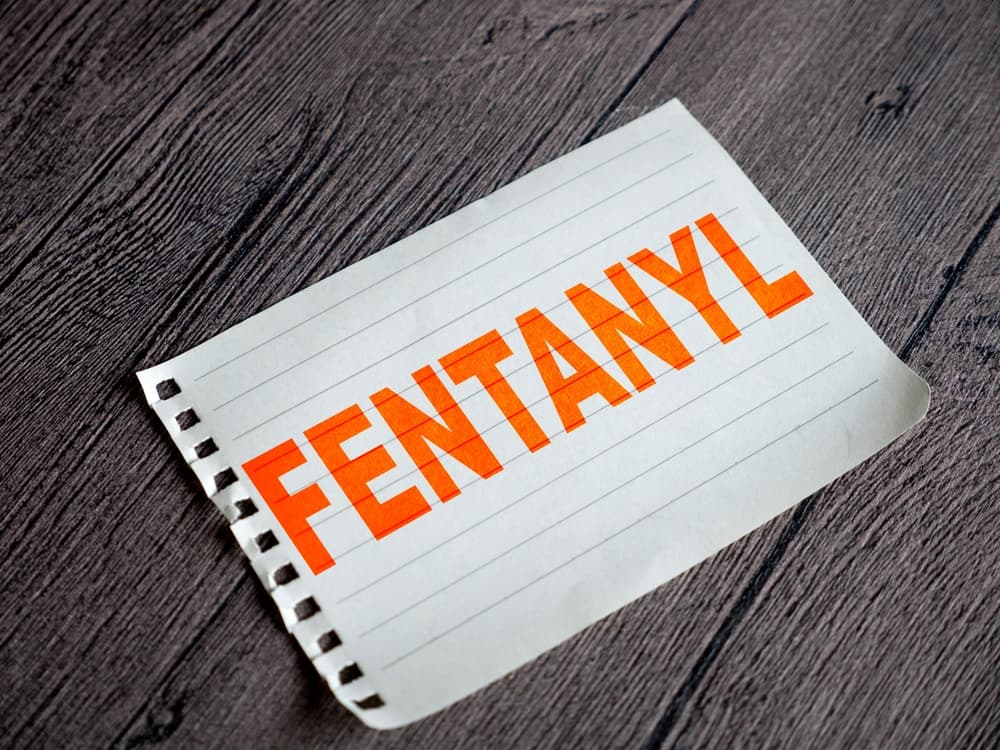August 4, 2024
There is no simple way to deal with drug charges, especially when it comes to a powerful and potentially deadly substance like fentanyl.
If you’ve been charged with a fentanyl-related offense in Florida, you are likely wondering what it means for your future and what steps you can take to defend yourself.
At Khonsari Law, we aim to empower alleged offenders by providing them with the information they need to understand their charges and make informed decisions with the help of a drug crime attorney from our award-winning law firm.
Schedule a Free Initial Consultation
What Are the Fentanyl Laws In Florida?
In Florida, fentanyl is classified as a Schedule II controlled substance under the Florida Comprehensive Drug Abuse Prevention and Control Act.
This means that it has a high potential for abuse and can lead to severe psychological or physical dependence.
The possession, sale, manufacture, or delivery of any form of the substance without a valid prescription is considered illegal and can result in criminal charges.
You may face serious consequences that significantly impact your personal and professional life if found guilty of these charges.
Is It Bad To Be Charged with Drug Possession?

There is never a situation where facing drug charges is considered “good.” Fentanyl charges can come with some of the harshest penalties in Florida.
The severity of the charge and potential consequences will depend on various factors, including but not limited to:
- The amount of in possession or involved in the offense
- Whether there was intent to sell or distribute
- Previous criminal history, including any prior drug-related offenses
In simple terms, the more fentanyl involved in the offense and the higher the intent to distribute or sell, the harsher the penalties will likely be.
In Florida, fentanyl-related charges are a Level 3 offense, which means that if convicted, you’ll likely face jail time and monetary fines.
What Are The Different Types of Fentanyl Possession Charges in Florida
Possession Related Offenses
Fentanyl-related possession is divided into two categories in Florida: actual and constructive possession.
Actual possession means that the alleged offender was found to have physical control of the drug.
Constructive possession means the substance was found in a place you are perceived to have control over, such as your home or vehicle.
In actual possession cases, prosecutors may have a more direct path to proving guilt, as the accused was found with physical control of the substance.
However, in constructive possession cases, prosecutors must prove that the alleged offender had knowledge and control over the substance.
These minute yet important differences highlight the advantages of having a drug crime attorney working to defend your case and protect your rights.
With their help, you can fight and potentially dismiss these charges if the prosecution fails to meet their burden of proof.
Disposal-Related Offenses
Florida has strict laws about the proper disposal of fentanyl. Failure to follow these laws can result in criminal charges. Disposal-related offenses include:
- Disposing of fentanyl waste materials without a permit.
- Disposal into water sources or public sewers.
- Any disposal method that violates state or federal regulations.
It isn’t easy to keep up with constantly changing laws, and an experienced lawyer will be familiar with the current regulations and how to best defend you against these charges.
Manufacturing-Related Charges
Manufacturing fentanyl is a serious offense in Florida that carries mandatory minimum sentences and hefty fines.
A strong legal defense is crucial in these cases as they often involve complex evidence and witness testimonies.
Your lawyer can help review all the evidence against you and challenge any illegal search and seizure tactics used by law enforcement.
Distribution and Trafficking Offenses
Distribution and trafficking offenses involve the sale, transportation, or importation of the substance.
These charges carry severe penalties in Florida, including mandatory minimum sentences based on the amount involved.
Like other fentanyl charges, the burden of proof is on the prosecution to prove guilt beyond a reasonable doubt.
With an experienced lawyer, you may be able to challenge the evidence against you and potentially decrease the charges or penalties in your case.
Exposure Offenses
On April 8th, 2024, Florida’s governor signed SB718 into law, making it illegal to expose someone else to fentanyl without their knowledge or consent.
While specifically aimed at protecting first responders, law enforcement, and healthcare workers, this law applies to anyone who exposes another person without their consent.
The same law, however, provides protections for those who need emergency medical assistance because of a suspected overdose.
In these cases, the person seeking medical help and any other person present during the incident may be able to reduce or avoid criminal charges.
Working with an experienced drug crime lawyer can help ensure your rights are protected in these situations.
What are the Penalties for Fentanyl Charges in Florida?
Penalties range in severity based on the specific charge and factors related to the offense:
- Possession of less than four grams comes with a mandatory minimum sentencing of five years in prison and $10,000 in fines.
- Possession of 4 to 14 grams, comes with a mandatory minimum sentencing of three years and up to $50,000 in fines. In severe cases, prison time could be increased to 30 years.
- Possession with intent to sell or distribute in amounts greater than 14 grams but less than 28 comes with a mandatory minimum of 15 years imprisonment and $100,000 in fines. Depending on the nature of the offense, prison time could increase to 30 years.
- Possession with intent to sell or distribute in amounts greater than 28 grams carries a mandatory minimum of 25 years in prison and fines of $500,000. A judge may impose the maximum sentence depending on case severity, which could see offenders imprisoned for up to 30 years.
- Manufacturing carries mandatory minimum sentences ranging from three years to life in prison, depending on the amount involved.
- Distribution and trafficking offenses involving minors have mandatory minimum sentences of 25 years in prison and $1 million in fines. A Florida judge has the right to increase the prison sentence to life in severe cases.
- Exposure offenses are second-degree felony charges that can result in up to 15 years in prison and a $10,000 fine.
You should never assume that the worst-case scenario is the only option.
With the help of an experienced lawyer from Khonsari Law Group, you may be able to reduce or even dismiss your charges and avoid the harsh penalties associated with them.
What Defenses Can a Drug Crime Lawyer Use?

There are several potential defenses an attorney can use to defend against drug charges in Florida. The most common include:
- Unlawful search and seizure: If law enforcement did not have a valid reason or warrant to search and seize, any evidence obtained may be deemed inadmissible in court.
- Lack of knowledge or control: In constructive possession cases, a lawyer may argue that the alleged offender did not have knowledge of the presence of fentanyl or control over it.
- Mistaken identity: Sometimes, individuals may be mistakenly identified as being involved with fentanyl when they were not actually present at the time of the offense.
- Inaccurate testing: The results of drug tests can sometimes be inaccurate, and a lawyer may challenge the validity or reliability of these test results in court.
- Miranda rights violations: If law enforcement did not properly inform the accused of their Miranda rights during questioning, any statements made may not be admissible as evidence.
These are just a few examples of potential defenses that an experienced drug crime attorney may use to defend their client against fentanyl charges.
Ultimately, the best defense strategy will depend on the case’s specific circumstances and should be tailored to fit each situation.
An experienced lawyer will thoroughly review all available evidence and work tirelessly to protect their client’s rights and achieve the best possible outcome.
Why Should I Not Represent Myself in a Florida Drug Crimes Case?
It may be tempting to represent yourself in court during your fentanyl case, especially if you believe you are innocent or have a strong defense.
However, drug crime cases can be complex and involve technical legal procedures that may be difficult for someone without legal experience to navigate.
Working with an experienced lawyer can help ensure that all potential defenses are explored and utilized, increasing the chances of a favorable outcome in your case.
Additionally, having a lawyer can help alleviate some of the stress and uncertainty of facing criminal charges.
What Are My Rights After a Drug Charge in Florida?
After being charged with a fentanyl offense in Florida, you have the right to:
- Remain silent: You do not have to answer any questions or provide any information without your lawyer present.
- Have an attorney present: If you cannot afford a lawyer, the court will appoint one for you.
- Be considered innocent until proven guilty: The prosecution has the burden of proof to prove your guilt beyond a reasonable doubt.
- Confront witnesses: You can cross-examine any witnesses brought against you in court.
- Present evidence and testimony: You can present evidence and call witnesses in your defense during trial.
It is essential to exercise these rights and not waive them without first consulting with a drug crimes lawyer. This can help protect your case and improve the likelihood of a positive outcome.
Florida Fentanyl Crimes FAQ
Can I be charged with possession if the drug was not found on my person?
Yes, you can still be charged with possession if law enforcement finds evidence that links you to the fentanyl, such as in your car or home.
Are there any alternatives to prison for drug offenses?
Depending on the specific circumstances of the case and your criminal history, your lawyer may be able to negotiate alternative sentencing options, such as drug treatment programs instead of prison time.
What should I do if I am arrested for a fentanyl offense?
Remain calm and invoke your right to remain silent. Do not answer any questions without a lawyer present. Contact a drug crime attorney as soon as possible to build your defense.
Can I be charged with distribution if I share my prescription with someone else?
Yes, sharing or selling prescription drugs is considered illegal distribution and can result in criminal charges.
How long does a fentanyl offense stay on my record?
These offenses can have long-lasting consequences and may remain on your record indefinatley. This highlights the importance of working with an experienced lawyer to fight against these charges and protect your future.
Are You Facing Fentanyl Charges in Florida? Contact a Drug Crime Lawyer From Khonsari Law Group Now.
It is scary and overwhelming to be facing fentanyl charges in Florida. However, with the help of a dedicated drug crime lawyer, you can have peace of mind knowing your case is in capable hands.
St. Petersburg criminal defense lawyers at Khonsari Law Group, we understand the severity of these charges. We will work tirelessly to protect your rights and achieve the best possible outcome for your case.
Contact us online or at (727) 269-5300 to learn more about how our award-winning legal professionals can help you overcome the challenges of a fentanyl charge.


